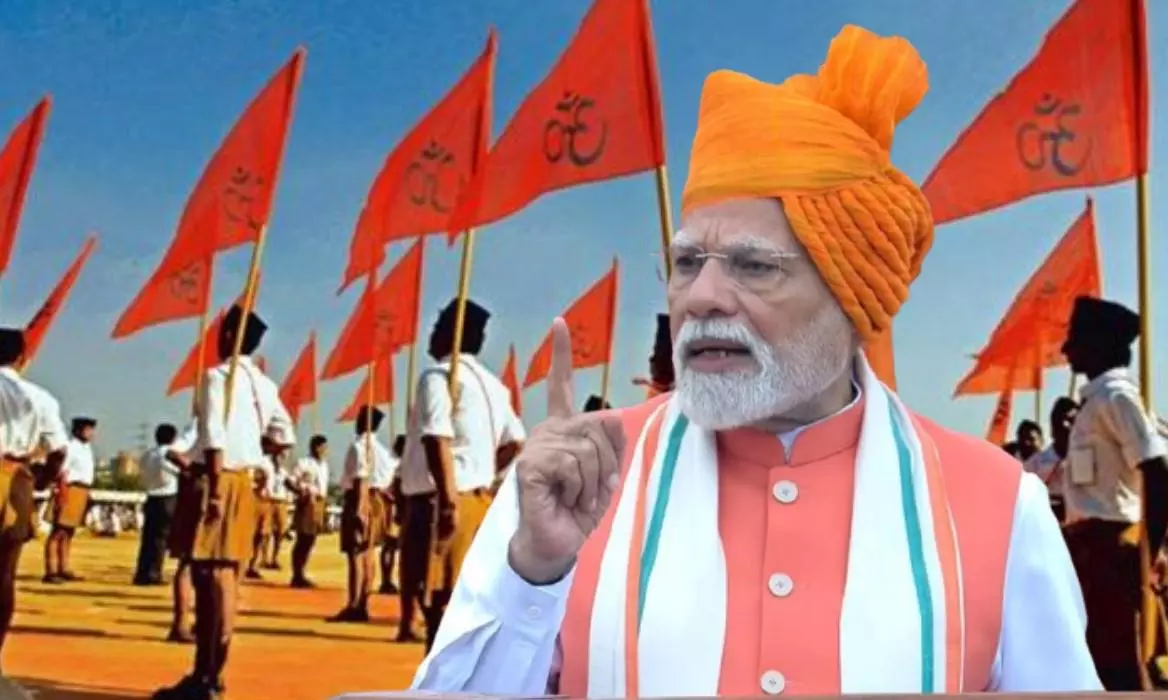
When freedom fighters were in jail, RSS was helping British: Cong reply to Modi’s remarks on RSS role
text_fieldsPrime Minister Narendra Modi, who praised the Rashtriya Swayamsevak Sangh for its struggles during the freedom fight and claimed that many were jailed, has been countered by the Congress, which said that when the real freedom fighters were in jail, the RSS members were out helping the British colonisers and even termed patriots like Mahatma Gandhi, Bhagat Singh and Chandrashekhar Azad anarchists.
The Congress on Wednesday strongly rejected the Prime Minister’s remarks, saying that the organisation had no role in the Independence movement, and instead aided the colonial government during the Quit India movement of 1942 when national leaders and activists across the country filled the prisons. The party asserted that far from being persecuted by the British, the RSS continued to function unimpeded and that its leaders were neither imprisoned nor banned at the height of the struggle.
The Prime Minister, addressing a centenary celebration of the Sangh in Delhi, had claimed that the organisation’s founder, KB Hedgewar, along with other swayamsevaks, had faced imprisonment for standing against British authority, and he maintained that the RSS provided refuge and assistance to freedom fighters seeking shelter during colonial crackdowns.
He linked the organisation’s sacrifices not only to the national movement but also to regional resistance, citing the Chimur agitation in Maharashtra in 1942 as well as confrontations with the Nizams of Hyderabad after Independence, and struggles connected to Goa and Dadra and Nagar Haveli. He emphasised that the Sangh had consistently prioritised the ideal of a united nation and a vision of “Ek Bharat, Shreshth Bharat.”
The Congress, however, advanced a diametrically opposite interpretation of history, alleging that at a time when patriots were risking their lives, the Sangh aligned itself with British interests.
According to the Congress, the RSS neither demonstrated active involvement in anti-colonial struggles nor suffered any political reprisals from the rulers, and instead was complicit in efforts to undermine the Quit India uprising. It also underlined that nationalist revolutionaries such as Mahatma Gandhi, Bhagat Singh, and Chandrashekhar Azad were disparaged by the Sangh, which described them in terms meant to diminish their sacrifice, while the British were tacitly favoured.
The Congress reinforced its attack by invoking slogans that were said to have gained ground during the period, suggesting that the RSS had betrayed the cause of freedom while patriots fought and endured hardship. The party maintained that the contrast between revolutionaries filling the jails and Sangh workers remaining untouched by repression illustrated the organisation’s collaborationist stance.












